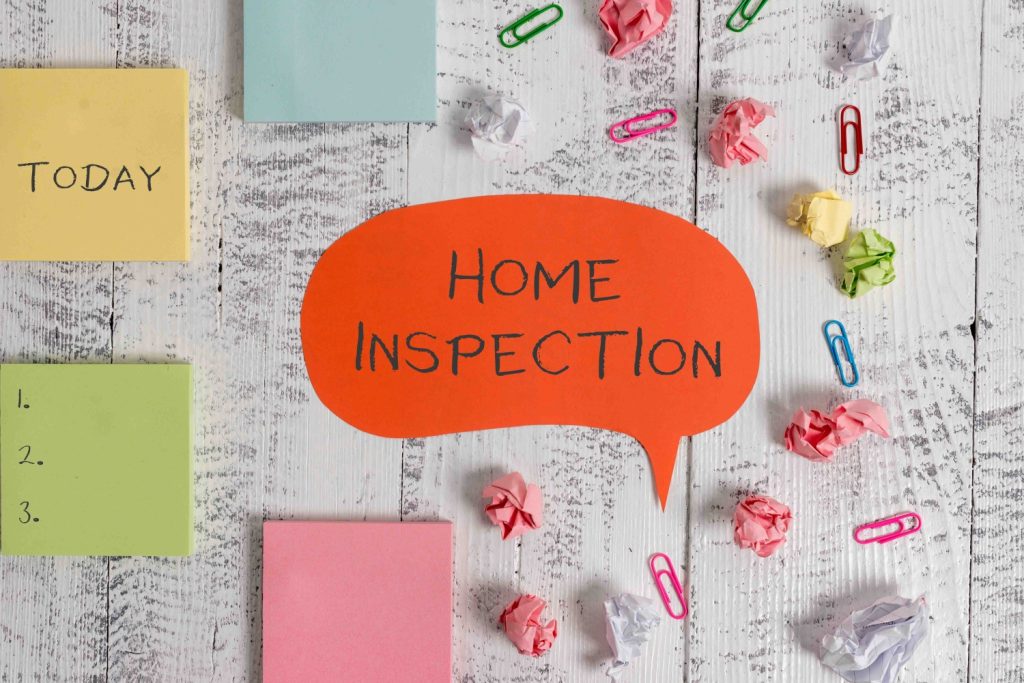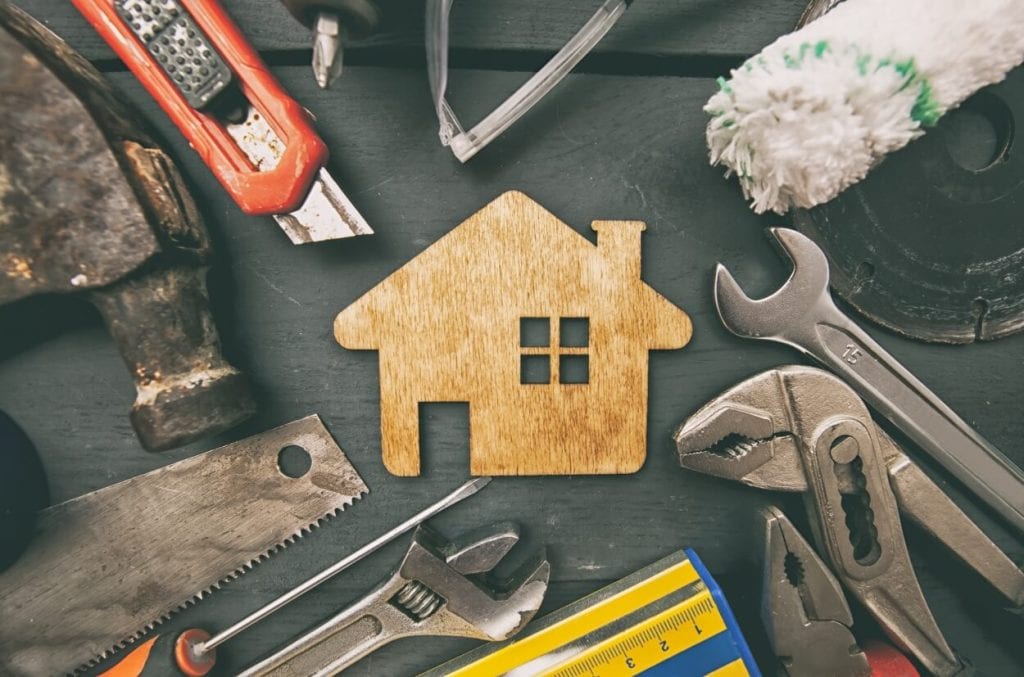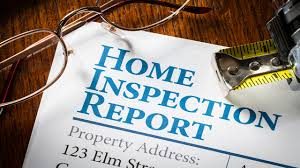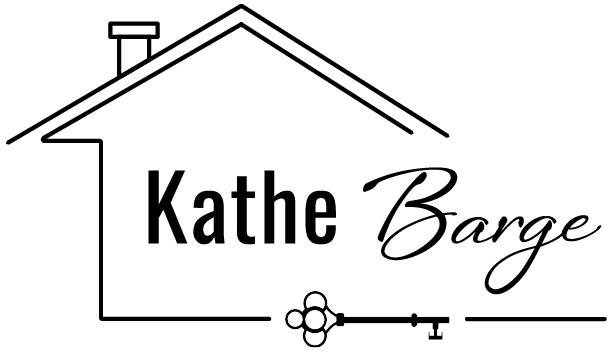by Kathe Barge | Jun 23, 2022 | Helpful Tips, Market Trends, Property Updates, Property Value

After renovating our home, all that remains is our basement. How important is it (or worth it) to clean this space up and how far should we go? Would I get the return on my money?
A basement often reveals more about a home than any other part of your home. It is therefore, more important than you might think that your basement present well. Most of what needs to be done to basements doesn’t need to be very expensive. Your basement should be easy to access. Whether you are staying or selling, excess clutter is not your friend –if you have a damp basement, it will harbor mold. Clean out now while the weather is nice! Your basement must be dry. If your basement just feels humid, then you must run a dehumidifier 24/7. If you have ever had water seepage in your basement, you will need to solve the problem. The quickest, easiest and most common fix is to make sure your gutters are kept clean, your downspouts are properly diverted at least 3 feet away from your foundation and that when it rains, water does not drain toward your home (in which case you would need to add soil to change the slope around your home). If that doesn’t work, you will need to invest in a professional waterproofing company.
Your basement should be light and bright – adding a few extra bulbs to the ceiling is something easily done inexpensively that will dramatically improve the feel of your basement. A fresh coat of paint on the floor will also help and is cheap to do (use porch floor paint). Glass block windows are a good investment – they are not very expensive and they add extra security and protection against termites and water intrusion to your home (I recommend including a vent block in each window so you still have the ability to circulate some air). Cleaning up old and unused wiring and plumbing is also a good idea if you have a handyman who can do it cheaply for you – it will certainly make inspections go more smoothly.
Getting your basement up to basic safety and code standards will also save you on inspections down the road. You should have a smoke detector near the furnace, any plugs should be GFCI outlets and if your basement connects to the garage, the door connecting them should be a steel door. Some of the more expensive fixes are unlikely to yield much of a return. Some people choose to spray their ceilings black – it’s a fun effect but unless the basement is being finished, it is unlikely to yield dividends. Others choose to parge their walls – this actually makes a sandstone foundation look much better, but unless you can do it yourself, it can be expensive.
[contact-form-7 id="115311" title="Get More Information Form"]
by Kathe Barge | Jun 13, 2022 | Buyers, Buying Conditions, Contracts, Helpful Tips, Inspections, Listings, Property Value, Real Estate

What kinds of items would be viewed as “hot buttons” for home buyers on inspections?
If you are a home seller, there is an ever increasing list of items that you will be expected to address if any are discovered on your home inspection. Given that, if you are thinking about selling your home, it would be a good idea to determine if any of these conditions exist at your home and remedy them prior to listing your home. Items that sellers are generally expected to address these days include:
Radon: if your home exceeds 4.0pCi/l, you will be expected to remediate the radon, even if it was a low reading when you bought the home. Radon varies over time. The estimated cost for a system is approx.. $1300.
Mold: If there is mold anywhere at all, you will be expected to have it remediated. Basements and attics are the most obvious places mold hides out, but be sure to check showers and under sinks.
Electrical: If you have knob and tube wiring, you will likely be paying for it to be removed and replaced, unless you price your home with a rewire in mind and disclose its presence. If your home has any Pushmatic brand electrical panels, buyers will also expect those to be replaced.
Broken Seals: if you have thermopane windows, doors or skylights in your home, buyers will expect you repair the broken thermo seals. This is evident because the windows have a cloudy look to them. There are a few companies in Pittsburgh that can do this reasonably affordably.
Septic/Sewer: Sewer lines are the newest “must do” inspection. If a buyer finds roots in your sewer line, at a minimum you will be expected to clear the roots from the line, but if they are bad you will be expected to line or replace the line. This can be extremely costly so I highly advise that you camera your own lines in advance of selling and get them in good shape.
You can be certain that if any of these conditions exist in your home, you will be expected to remedy the condition unless you disclose its presence and price accordingly.
[contact-form-7 id="115311" title="Get More Information Form"]
by Kathe Barge | Jun 9, 2022 | Blog, Buyers, Buying Conditions, Contracts, Helpful Tips, Inspections, Listings, Property Updates, Property Value, Real Estate

We find the inspection process confusing – do we have to fix everything in the inspection report before we sell our home or just the repairs the buyer requested?
The home inspection report is the document from which your buyer works to make their repair requests of you. Some buyers will ask for everything and others will ask for only those items that they think are important. They may let some things go, for example, if they are planning on renovating an area and anticipate fixing those items as a part of the renovation.
Once you and your buyer agree on a list of repairs, these are memorialized on an addendum. It is that addendum, called a Change in Terms Addendum (“CTA”), from which you work when completing your repairs. You need not refer to the inspection again unless the CTA references it. You do, however, need to make sure that you do everything on the CTA exactly as specified, so be sure to read it carefully and provide a copy to your contractor(s). For example, if the CTA says that you will have GFCI outlets installed by a licensed electrician then you need to make sure you hire a licensed electrician, and not your favorite handyman, to make the repair! If the CTA says you must paint to match existing then you need to take a sample of the existing paint to the paint store and color match it – don’t rely on old paint in cans – paint fades with age and it won’t match. Be very careful to be sure you are complying with the terms of the CTA – if you do not, or if your contractor does not, your closing may be delayed or postponed until the work is done as specified. Along those lines, be sure to review your contactor’s work when complete and make sure that he actually did what you agreed to do on the CTA. If not, request that he return before it becomes a walk-through issue.
And of course, be sure to get paid receipts from all contractors, or if they have not been paid, notify the closing company so that they can be paid at closing. All repairs must be paid for before ownership changes hands so be sure to stay on top of your bills, and provide receipts to the buyers agent.
A home’s value is set by the market. Value is always determined by what a buyer is willing to pay for your home. Many factors come into play in setting that value. Market value reflects quantitative factors such as: # bedrooms, # bathrooms, # garages, placement of garages (attached or integral), lot configuration (large and functional back yard? Cliff lot?), location of the home generally, age of roof, age of mechanicals. Market value also reflects more qualitative items: how updated is your home, and is it all new, or just refreshed? What is the floorplan (open concept?) What are your wall colors? There is always a range that value will land in, which we call the range of reasonable. There is no ONE price at which a home will sell. If there are many buyers seeking a home like yours, it will sell at the top of the range of reasonable. If there are not, it will take longer to sell and may sell a bit lower in the range. What the market does not consider in setting a value of a home is what you need from the home. In 2008, many homeowners had used their homes as ATMs and withdrawn large sums of money for educations, vacations and cars. When the market softened, there was not enough equity for them to be able to sell their homes and not be in a short sale situation. This fact, that a homeowner over-extended themselves on mortgages, is not the least bit relevant to market value. The market is also not going to consider what you plan to do next. If you plan to move to Los Angeles to be closer to family and are finding that the Pittsburgh market is not going to yield you enough to be able to buy in L.A., you will need to turn to other investments to make up any difference.
We are in a very robust market – your home is far more likely to garner more now – whatever that may be – than it could have in the past. Forecasters are also suggesting that values will soften by year end. My crystal ball is out for service, but what I can tell you is that every hot market eventually softens. Waiting out the market so that you can get a price that the market is unprepared to deliver at this time may have you waiting many, many years, and during that time you may need to invest even more in your home in order to deliver to the market what it needs in order to deliver an acceptable sale to you.
[contact-form-7 id="115311" title="Get More Information Form"]
by Kathe Barge | Mar 30, 2022 | Buyers, Buying Conditions, Contracts, Helpful Tips, Inspections, Listings, Market Trends, Property Updates, Property Value, Real Estate, Sellers

The market is so hot right now and we aren’t having any luck getting a home – should we waive home inspections?
You are correct –the market under $1million is very fast paced right now, and in many instances, the winning bidder has waived home inspections. That does seem to be what it may take to “win” right now but I cannot recommend that you make that choice. Now several months into the “waive inspections” craze we are starting to hear stories about the expected fallout from this hasty decision.
From the seller’s perspective, I highly recommend that you have your home pre-inspected and repair or disclose the relevant items. While an inspection might cost you upwards of $500, it is money well spent toward a smooth closing. If you have pre-inspected your home and provide the report to prospective buyers, you are doing your part to make sure your buyer is well-informed. In the absence of a pre-inspection, I do not recommend that you accept an offer from a buyer who has not inspected your home. I have started hearing from home inspectors that disgruntled buyers are seeking post closing inspections to find problematic items and sue the sellers for failure to disclose. You don’t want that to be you. If you have not pre-inspected, we can discuss strategies to allow a buyer’s inspection and still protect you.
From a buyer’s perspective, as we all imagined would happen, the post-closing stories are starting to mount about buyers who purchased without an inspection and are now having all sorts of forseeable issues – roofs leaking, furnaces failing… If you are going to make this risky choice, you need to do so knowing that you will be assuming the risk of potentially tens of thousands of dollars of issues The contract specifically states that your inspection is your opportunity to find issues – if you waive that, you will be fighting an uphill battle to recover against anyone. Before you make an offer without an inspection contingency, you really do need to ask yourself if you are prepared to absorb those costs!
[contact-form-7 id="115311" title="Get More Information Form"]
by Kathe Barge | Mar 8, 2022 | Buying Conditions, Helpful Tips, Inspections, Listings, Market Trends, Real Estate, Sellers

Our neighbor just had to replace their sewer line – is that a common home inspection repair?
Sewer lines have become as radon was 20 years ago – today’s hot button for home buyers. In some boroughs (Mt Lebanon, for example) the borough now requires that before a home seller can transfer ownership, the sewer line must be scoped and must be without issues. Here in the Sewickley area, we do not have any boroughs imposing any such requirement on home sellers yet, but many buyers today do have a scope performed of the sewer line as part of their home inspection. And yes, if issues are discovered, they do expect the seller to remedy them. If a sewer line needs to be replaced, the cost will likely be between $5,000 and $10,000.
Sewer lines are not something we think about on a daily basis. As long as we don’t have back-ups, we assume that all is well with the line. But this is not necessarily the case. With older homes, sewer lines were made of terracotta pipe and this can break easily and can also be easily infiltrated by tree roots. If you live in an older home and haven’t replaced your sewer line, there is a good chance you have some issues.
Paying for a sewer camera test is not anyone’s idea of a good time, but if you are contemplating a sale of your home, it is probably a smart, pro-active thing to do. If you discover a problem in advance, there may be some cost-effective options for you to solve the problem without a full replacement of the line. Sewer lines can often by lined with a plastic liner. Tree roots can often by removed by hydrojetting. If you wait for a buyer to perform the test, you may get stuck with a full new line — the buyer might not accept one of the compromise options. So its best to explore the sewer line now, before it becomes an issue, and make any needed corrections.
[contact-form-7 id="115311" title="Get More Information Form"]
by Kathe Barge | Feb 2, 2022 | Buyers, Buying Conditions, Inspections, Listings, Property Updates, Property Value, Real Estate, Sellers, Selling Conditions

Sometimes it seems like everything is breaking around our house and we get behind on repairs. Isn’t there some level of wear and tear buyers of “previously enjoyed” homes are expecting to have to accept?
The process of selling and buying a home involves many fine lines. How far do you take preparing your home for sale? Do you really need to address all of the items suggested by your agent, the home stager or the home inspector who did a pre-inspection? Do you really have to attend to everything your family has broken or worn out over the years
Anything that could come up on an inspection, if you know about it, really must be repaired or disclosed. My vote is repair. Even with items that are very obvious, when an inspector gets involved, he may blow the issue out of proportion and something that might have cost you $1000 to repair before you listed ends up costing you $3000 on the inspection request. If its something an inspector might find, you can bet he will find it and you will be expected to cover the cost of repair anyhow, so you might as well repair upfront.
Many buyers actually get quite nervous during the home inspection (also known as buyers remorse). If you happened to have gotten one of these buyers, it is possible that they could walk away from your deal if the inspection concerns feel too weighty to them. After you actually receive and negotiate the offer, the last thing you want to do is lose the buyer over items that you could have fixed but didn’t think anyone would notice or care about! In today’s market, they notice, they care. Sometimes they are willing to let you pay for the repair. Sometimes they just walk. Don’t take any chances. If you suspect it is likely someone would seek a repair, get it done!
Buyers, as much as I advocate for sellers to take care of the wear and tear items on their homes, it is important for you to be reasonable on your inspection requests as well. If you see an item that needs to be fixed while you are touring the home, take that into account when you make your offer and do not revisit it on the inspection. Inspection requests are supposed to be for items you didn’t know about and didn’t have a chance to adjust for in making your offer. Again, its a fine line buyers also walk in deciding what are fair and appropriate inspection requests of a seller.
[contact-form-7 id="115311" title="Get More Information Form"]
by Kathe Barge | Sep 7, 2021 | Blog, Buyers, Buying Conditions, Contracts, Inspections, Listings, Market Trends, Marketing, Mortgage, Property Value, Real Estate, Sellers, Selling Conditions

We hear selling a home can be a trying process. Any annoyances a seller should be expecting?
Below is a short list of many of the “joys” sellers might experience during the listing process. Being aware that these are possibilities will hopefully help you take them in good humor if they happen to you!
- The agent showing your home will miss appointments and not call or show up.
- Appointments will be made and cancelled at the last minute.
- Some showings will last about five minutes and some will last 3 hours.
- There will be a day when I call you and say someone wants to see your house, and you are going to ask me when. And I will say: “Look out your windows, they are sitting outside now”!
- Agents are going to knock on your door or even drive by, see you in the yard and ask if can they see you house.
- Agents showing your home will forget to turn lights off.
- Agents showing your home will let your pets out (best to remove them from your home for showings) or your neighbor’s pet in.
- Agents will provide unhelpful feedback – buyers buy homes when they attach emotionally to a home and when they don’t, their feedback is often nonsensical.
- Agents will not provide any feedback – incredibly annoying, I know.
- Expect lowball offers (at least it is a starting point). If your home has been on the market for more than a month, there is a reasonable chance that you priced it too high – maybe the lowball isn’t as low as you think.
- Things will come up on the inspection that you had no idea were wrong with your home and you will be sure the inspector made a mistake. A pre-inspection is a great way to protect yourself against this!
- The buyer will make ridiculous inspection requests.
- The buyer will ask to bring in contractors for estimates for work they want to do after the closing at the seemingly most inconvenient times.
- The property might not appraise at what you are selling it for. In a hot market like this one, this is a real risk. Be prepared to adjust your price if your sales price is over the listing price and it doesn’t appraise.
- The closing date on the contract may change. Lenders and closing companies remain swamped right now – be open to the possibility of a delay.
[contact-form-7 id="115311" title="Get More Information Form"]
by Kathe Barge | Feb 21, 2021 | Blog, Buyers, Buying Conditions, Home Staging, Inspections, Market Trends, Property Updates, Property Value, Real Estate, Sellers, Selling Conditions

Sometimes it seems like everything is breaking around our house and we get behind on repairs. Isn’t there some level of wear and tear buyers of “previously enjoyed” homes are expecting to have to accept?
The process of selling and buying a home involves many fine lines. How far do you take preparing your home for sale? Do you really need to address all of the items suggested by your agent, the home stager or the home inspector who did a pre-inspection? Do you really have to attend to everything your family has broken or worn out over the years? Anything that could come up on an inspection, if you know about it, really must be repaired or disclosed. My vote is repair. Even with items that are very obvious, when an inspector gets involved, he may blow the issue out of proportion and something that might have cost you $1000 to repair before you listed ends up costing you $3000 on the inspection request. If it’s something an inspector might find, you can bet he will find it and you will be expected to cover the cost of repair anyhow, so you might as well repair upfront.
Many buyers actually get quite nervous during the home inspection (also known as buyers remorse). If you happen to get one of these buyers, it is possible that they could walk away from your deal if the inspection concerns feel too weighty to them. After you actually receive and negotiate the offer, the last thing you want to do is lose the buyer over items that you could have fixed but that you didn’t think anyone would notice or care about! In today’s market, they notice, they care. Sometimes they are willing to let you pay for the repair. Sometimes they just walk. Don’t take any chances. If you suspect it is likely someone would seek a repair, get it done!
Buyers, as much as I advocate for sellers to take care of the wear and tear items on their homes, it is important for you to be reasonable on your inspection requests as well. If you see an item that needs to be fixed while you are touring the home, take that into account when you make your offer and do not revisit it on the inspection. Inspection requests are supposed to be for items you didn’t know about and didn’t have a chance to adjust for in making your offer. Again, it’s a fine line buyers also walk in deciding what are fair and appropriate inspection requests of a seller.
[contact-form-7 id="115311" title="Get More Information Form"]
by Kathe Barge | Nov 30, 2020 | Blog, Buyers, Buying Conditions, Home Staging, Inspections, Market Trends, Property Updates, Property Value, Real Estate, Sellers
If there was one thing you would advise us to do to our home as we continue our months “at home,” in this global pandemic, what would that be?
 Whether you are planning to sell your home this coming year or not, the best thing you can do to your home is a home inspection! We all live in our homes but rarely take the time to stop and give them a careful look. Weather beats up the outside of our homes year round. Caulking fails, flashing fails, paint peels and exposes wood to rot. We forget to clean our gutters on a regular basis – gutters and downspouts fill with decaying debris, causing water to back up into our homes and cause mold problems. We forget to have our furnaces serviced and fittings loosen and cause condensate to leak and rust our furnaces. The list goes on and on. Simply living in and not doing a regular check up on your home, you are leaving it open to the possibility of major repair bills later and major depreciation in your investment’s value. A home inspection will give you a to do list of projects to tackle throughout the year to keep your home in great shape and maintain its value!
Whether you are planning to sell your home this coming year or not, the best thing you can do to your home is a home inspection! We all live in our homes but rarely take the time to stop and give them a careful look. Weather beats up the outside of our homes year round. Caulking fails, flashing fails, paint peels and exposes wood to rot. We forget to clean our gutters on a regular basis – gutters and downspouts fill with decaying debris, causing water to back up into our homes and cause mold problems. We forget to have our furnaces serviced and fittings loosen and cause condensate to leak and rust our furnaces. The list goes on and on. Simply living in and not doing a regular check up on your home, you are leaving it open to the possibility of major repair bills later and major depreciation in your investment’s value. A home inspection will give you a to do list of projects to tackle throughout the year to keep your home in great shape and maintain its value!
You may not think about this until you go to sell your home. Some of the wear and tear may be obvious to a buyer, who will typically have checked out every available home, be able to see signs of your “benign neglect,” and pass on yours because of its comparatively negative condition. Even if a buyer doesn’t’ notice at first, there is no doubt that a home inspector will notice! After working hard to get your home sold, you may find yourself in the all too common situation of being presented with a long list of inspection requests that you need to complete in order to hold your deal together, or worse yet, a buyer who backs out of your deal because the house needs “too much work,” leaving you in the position of having to fix everything and start all over again. A homeowner should expect simply keeping a home in acceptable condition will cost them $3,000 – $10,000 a year, depending on the size of the home – some years will be more if its time for a major project, and some less. If you’re not investing this, chances are someday you will when you are faced with a long list of inspection issues.
So while you remain “at home” waiting for the day the vaccine arrives, why not give your home a check up and attend to its needs! Give me a call if you need the names of reputable local inspectors.
[contact-form-7 id="115311" title="Get More Information Form"]
by Kathe Barge | Sep 17, 2019 | Blog, Inspections, Sellers
We want to sell our home “as is.” Is this possible?
 If everything comes together perfectly, then yes, it is possible to sell your home “as is” — here is what you will need to do to make that happen!
If everything comes together perfectly, then yes, it is possible to sell your home “as is” — here is what you will need to do to make that happen!
First, you must start by having your home pre-inspected. Very few buyers would consider waiving inspections if the home has not been a qualified home inspector, with reports provided to prospective buyers. You will then need to take the inspection and use it to thoroughly complete the disclosure, making sure that you clearly identify all deficiencies that you aren’t planning to repair. If there are larger items such as a high radon reading, suspected mold or knob and tube wiring, you should at a minimum get estimates for the repairs. All of these things, the disclosure, the inspection reports, and the estimates, all need to be provided to prospective buyers.
The second step to a successful “as is” sale is to price the home for the condition you now know it to be in. The advantage to this approach is being able to tell buyers that the price reflects known condition. You will be far less likely to have requested price adjustments later for unknown issues. It is very important that your chosen price reflect the condition you now know your home to be. For example, if your home has knob and tube wiring, you can’t expect to receive the same price as a similar home that had been rewired. Rewiring is generally speaking a $20,000 – $40,000 project.
Finally, a great marketing strategy is key. To truly achieve an “as is” sale your agent will need to drive in significant traffic and generate multiple offers so that the bidding buyers are willing to waive all inspections in order to be the winning bidder.
I just orchestrated this approach on one of my listings and it worked perfectly. A seller I represented wanted an “as is” sale, did the pre-inspections, obtained estimates and priced very well. We ended up with 4 offers, inspections waived, and ended up selling at nearly 10% over list price! The up-front effort was well worth the end-result!
[contact-form-7 id="115311" title="Get More Information Form"]
by Kathe Barge | Jun 4, 2019 | Blog, Buyers, Inspections, Real Estate, Sellers
My home has so many special features. I think it would be best if I were at showings so I could explain them to prospective buyers. Is that ok?
 When you are selling your home, its normal to think that only you can fully convey your home’s fine qualities to a buyer. This leads some sellers to consider the possibility of being home for showings, so that they can make sure that the buyer prospects appreciate all of the home’s amenities. While this may seem sensible to a seller, nothing could be further from the truth!
When you are selling your home, its normal to think that only you can fully convey your home’s fine qualities to a buyer. This leads some sellers to consider the possibility of being home for showings, so that they can make sure that the buyer prospects appreciate all of the home’s amenities. While this may seem sensible to a seller, nothing could be further from the truth!
When buyers visit your home, it is important that they be allowed the space to imagine the home as their own. This starts, of course, with home staging, so that the home is not overly personal when the buyers arrive. But it extends to allowing them to tour the home alone with their buyer agent. For buyers to buy a home, they must bond to a home. For buyers to bond to a home, they need to be free to relax in your home and chat with their agent about what they would do to make the home their own. This will not happen if you are present. So what can you do to make sure they appreciate your home’s qualities? Hire a listing agent who will design a custom brochure for your home that is available when buyers visit your home. Such a brochure is your best ammunition – they can take it home and recall all of your home’s wonderful features and get their questions answered as well.
Giving the buyers their space extends to the home inspections as well. The period during the home inspection is one of normal buyer remorse. Did we buy the right home? Will a better home become available? Allowing buyers the freedom to return to your home alone will allow them to bond again to your home and stay committed to it during the sometimes difficult inspection process.
In fact, the only time you should interact with your buyer is at the closing. From initial showing to return visits, inspections and walk-throughs, you should always vacate your home and give the buyers their space!
[contact-form-7 id="115311" title="Get More Information Form"]
by Kathe Barge | May 6, 2019 | Blog, Buyers, Inspections, Sellers
I’ve heard that agreements on many homes have fallen through lately from home inspections – why is that?
 Our market has traditionally been one where buyers know they are buying old homes and allow the seller some leeway in not presenting a “perfect” home from an inspection standpoint. However, in many parts of the country, this is not the case. Sellers are expected to remedy all issues noted by home inspectors prior to closing. As more and more people migrate here from other parts of the country, our prices are going up, but so are the buyers’ expectations as to a seller’s responsibility for concerns discovered on a home inspection. At the same time, inspectors are getting significantly more particular. And so yes, it is absolutely possible to have purchased a home only two years ago and have new concerns arise that clearly existed and were overlooked when you bought your home. And yes, it is equally possible that you will be expected to fix them and if you refuse, your sale might fall through.
Our market has traditionally been one where buyers know they are buying old homes and allow the seller some leeway in not presenting a “perfect” home from an inspection standpoint. However, in many parts of the country, this is not the case. Sellers are expected to remedy all issues noted by home inspectors prior to closing. As more and more people migrate here from other parts of the country, our prices are going up, but so are the buyers’ expectations as to a seller’s responsibility for concerns discovered on a home inspection. At the same time, inspectors are getting significantly more particular. And so yes, it is absolutely possible to have purchased a home only two years ago and have new concerns arise that clearly existed and were overlooked when you bought your home. And yes, it is equally possible that you will be expected to fix them and if you refuse, your sale might fall through.
This can often leave a seller feeling like they are the unlucky one who got stuck holding the “hot potato.” As the years pass, the list of “hot button” issues mounts and if you are the owner when the issue is discovered, you will be the one paying the bill even though the home was bought and sold many times in advance of your ownership. These hot button issues include items such as old sewer lines, radon, mold, damp basements, lead water lines, asbestos (fireplace inserts, duct tape, pipe wrap or flooring) knob and tube wiring and pushmatic electric panels. If your home has any of these issues, you should figure you will be the one footing the bill and address them before they become an issue on a home inspection.
The best way to prevent an inspection fall through or an unexpected bill for defects is to have your home inspected before you put it on the market. A pre-inspection will allow you the opportunity to fix those items that can be fixed and disclose the rest to save yourself from a laundry list of requests. Be sure not to ignore the small stuff that comes up or that you know is wrong. For example, when I list a home, I specifically ask sellers if all of their windows open, stay open, shut and lock, and if any are cracked or have broken seals. Sellers more often than not disclose no issues with their windows and yet it is one of the most frequent inspection deficiencies. Take the time to do your homework – get your home inspected – repair or disclose any possible concerns – and save yourself from a long last-minute repair list and potentially even from losing your sale.
[contact-form-7 id="115311" title="Get More Information Form"]
by Kathe Barge | Oct 3, 2018 | Blog, Buyers, Inspections, Listings, Real Estate, Sellers
As a home seller, are there inspection type items that we are simply going to be stuck addressing?
 Who can forget the old childhood game – pass the hot potato? The object, of course, was to not be holding the hot potato when the music stops. We have our fair share of “hot potatoes” in real estate too, and just like in the childhood game, someone always gets stuck holding the hot potato.
Who can forget the old childhood game – pass the hot potato? The object, of course, was to not be holding the hot potato when the music stops. We have our fair share of “hot potatoes” in real estate too, and just like in the childhood game, someone always gets stuck holding the hot potato.
You may wonder, what are these hot potatoes of which I write? Years ago, it was radon. If you were selling your home and it had radon levels in excess of the EPA limit of 4.0 pCi/L, you got stuck paying the remediation bill (usually less than $1000) because a buyer isn’t going to agree to buy a home with a radon problem. That hasn’t changed, but if a home has sold in recent years and ever had radon, chances are it has been remediated.
Next, the media exploded with stories of illness caused by mold in homes and suddenly, sellers were faced with mold inspections. There is the very bad black mold (Stachybotrs), but honestly, all molds have the potential to make you sick. As you can imagine, buyers aren’t going to buy a home with a mold problem either, and once again, the seller bears the cost of remediation and often, the cost to solve the cause of the mold problem as well. The cost can be several hundred to several thousand dollars.
These days, the hot potatoes have expanded to include two tricky electrical issues. Pushmatic electrical panel boxes are very expensive to maintain and the manufacturer is no longer in business. Most buyers will require a seller to replace these panel boxes – the cost per panel is generally $1500+. Knob and tube wiring is the other big hot potato for homes built before 1930. Rewiring an entire home can range between $10,000 – $20,000 and so many homes retain this original wiring. Most insurance companies will no longer issue new insurance policies on homes with this antiquated wiring. Therefore, if knob and tube wiring is discovered on an inspection, the cost of the rewire also generally falls to the seller – very few buyers are willing to buy a home (at least not unless they are getting a substantial discount) if it has knob & tube wiring present.
If you own a home with one of these hot potatoes – radon, mold, pushmatic panel or knob & tube wiring – things that years ago wouldn’t have raised an eyebrow – you should expect that when you go to sell your home, you will be stuck with the cost of getting rid of the hot potato, if you haven’t already done so!
[contact-form-7 id="115311" title="Get More Information Form"]
by Kathe Barge | Jun 26, 2018 | Blog, Contracts, Inspections, Sellers
 We find the inspection process confusing – do we have to fix everything in the inspection report before we sell our home or just the repairs the buyer requested?
We find the inspection process confusing – do we have to fix everything in the inspection report before we sell our home or just the repairs the buyer requested?
The home inspection report is the document from which your buyer works to make their repair requests of you. Some buyers will ask for everything and others will ask for only those items that they think are important. They may let some things go, for example, if they are planning on renovating an area and anticipate fixing those items as a part of the renovation.
Once you and your buyer agree on a list of repairs, these are memorialized on an addendum. It is that addendum, called a Change in Terms Addendum (“CTA”), from which you work when completing your repairs. You need not refer to the inspection again unless the CTA references it. You do, however, need to make sure that you do everything on the CTA exactly as specified, so be sure to read it carefully and provide a copy to your contractor(s). For example, if the CTA says that you will have GFCI outlets installed by a licensed electrician then you need to make sure you hire a licensed electrician, and not your favorite handyman, to make the repair! If the CTA says you must paint to match existing then you need to take a sample of the existing paint to the paint store and color match it – don’t rely on old paint in cans – paint fades with age and it won’t match. Be very careful to be sure you are complying with the terms of the CTA – if you do not, or if your contractor does not, your closing may be delayed or postponed until the work is done as specified. Along those lines, be sure to review your contactor’s work when complete and make sure that he actually did what you agreed to do on the CTA. If not, request that he return before it becomes a walk-through issue.
And of course, be sure to get paid receipts from all contractors, or if they have not been paid, notify the closing company so that they can be paid at closing. All repairs must be paid for before ownership changes hands so be sure to stay on top of your bills, and provide receipts to the buyers agent.
[contact-form-7 id="115311" title="Get More Information Form"]
by Kathe Barge | Jun 13, 2018 | Blog, Buyers, Contracts, Inspections, Real Estate, Sellers
We closed on our new home recently and when we went on the walk through, the seller had not completed the inspection repairs that they had agreed to do and didn’t seem to think was an issue. Your thoughts?
 I have noticed a trend lately away from respecting contracts. I’m not sure if its because consumers don’t understand what they are signing, are too busy to keep everything straight or just don’t care. Whatever the reason, the real estate contract and its addendums are what makes a real estate transaction work. If you want to sell your home, you need some kind of document that binds the buyer to your home so that they don’t just walk away, leaving you holding a home you just moved out of and unable to close on your new home. It is equally important to the buyer – they need a document by which a seller is actually bound to sell their home so that the buyer is also not sitting on the curb waiting to unload the moving van and unable to get the seller out (and yes, real estate is specific performance – if you sign a contract to sell, you must sell).
I have noticed a trend lately away from respecting contracts. I’m not sure if its because consumers don’t understand what they are signing, are too busy to keep everything straight or just don’t care. Whatever the reason, the real estate contract and its addendums are what makes a real estate transaction work. If you want to sell your home, you need some kind of document that binds the buyer to your home so that they don’t just walk away, leaving you holding a home you just moved out of and unable to close on your new home. It is equally important to the buyer – they need a document by which a seller is actually bound to sell their home so that the buyer is also not sitting on the curb waiting to unload the moving van and unable to get the seller out (and yes, real estate is specific performance – if you sign a contract to sell, you must sell).
There are some basic principles to keep in mind that apply to all contracts. Sellers, if you include something on your disclosure, it is important that you actually leave it behind for the buyer. The stove and dishwasher are obvious, but what about garage door openers? When you are listing your home, take the time to be sure that you correctly list what is included – misplace a garage door opener and you are contractually required to buy a new one for the buyer.
If you agree to fix something during an inspection negotiation, then yes, you must actually get it fixed. Its not ok to have the buyer show up for the walk through and find out you haven’t taken care of the agreed upon repairs. What you signed is legally binding – do what you said you will do or be prepared to give a hefty last minute credit to the buyer. If you do get the items fixed, be sure to pay your bill before closing! These repair bills are not the buyers’ responsibility and its also not ok to agree to make a repair and then stick the buyer with the bill.
And remember, the contract requires that your home be in the same condition it was in when the buyer made you the offer. If you break something, you will need to fix it prior to closing. At 13 pages, it is a lengthy document but it is important that you understand what you have agreed to do. We can’t all be attorneys, so be sure to hire a realtor that you have confidence will thoroughly explain what you have signed and help you to be a good seller and honor all of its terms!
[contact-form-7 id="115311" title="Get More Information Form"]
by Kathe Barge | Jun 5, 2018 | Blog, Buyers, Inspections, Real Estate, Sellers
From what we hear, it seems buyers are very picky on home inspections these days. What should a seller expect?
 What a Seller needs to be prepared for on a home inspection needs to be evaluated in the context of the entire deal! Both buyers and sellers need to keep things in perspective. If a Buyer got a great deal on a home, then the inspection should be more about major things that the Buyer could never have known about. If a Seller got top dollar for a home, the Seller should expect to be very generous on the inspection resolution with the buyers. Sellers do need to expect that a buyer paying close to asking price will expect the inspection items to be addressed by the Seller unless the Seller had disclosed them on the Disclosure.
What a Seller needs to be prepared for on a home inspection needs to be evaluated in the context of the entire deal! Both buyers and sellers need to keep things in perspective. If a Buyer got a great deal on a home, then the inspection should be more about major things that the Buyer could never have known about. If a Seller got top dollar for a home, the Seller should expect to be very generous on the inspection resolution with the buyers. Sellers do need to expect that a buyer paying close to asking price will expect the inspection items to be addressed by the Seller unless the Seller had disclosed them on the Disclosure.
The Disclosure is a Seller’s friend. What a Seller discloses is supposed to be outside the scope of inspection requests. These are items that the Buyer should be taking into account when making their initial offer. Therefore, when filling out the Disclosure, Sellers will want to review it carefully to be sure it is thorough. Inspectors do not miss anything these days, so it will be far less of a financial blow to a seller if all possible issues are noted up front.
Of course, a pre-inspection may be a Seller’s best approach for a smooth transaction for all parties. While a seller will spend approximately $400 up front, it gives you a chance to repair or disclose the issues before they possibly destroy a deal. Remember, if buyers and sellers can’t come to a resolution about inspection concerns, the deal is terminated and both parties move on. Sellers, you obviously want to sell or you wouldn’t be undergoing the joy of preparing your home for showings. Keep the big picture in mind and understand that unless you are giving your home away, your buyer will expect you to fix what you didn’t disclose. Don’t like the sound of that? Pre-inspect so you know what you will have to address upfront.
[contact-form-7 id="115311" title="Get More Information Form"]
by Kathe Barge | May 31, 2018 | Buyers, Contracts, Inspections, Listings, Real Estate, Sellers
I’ve heard that agreements on many homes have fallen through lately from home inspections – why is that?
Our market has traditionally been one where buyers know they are buying old homes and allow the seller some leeway in not presenting a “perfect” home from an inspection standpoint. However, in many parts of the country, this is not the case. Sellers are expected to remedy all issues noted by home inspectors prior to closing. As more and more people migrate here from other parts of the country, our prices are going up, but so are the buyers’ expectations as to a seller’s responsibility for concerns discovered on a home inspection. At the same time, inspectors are getting significantly more particular. And so yes, it is absolutely possible to have purchased a home only two years ago and have new concerns arise that clearly existed and were overlooked when you bought your home. And yes, it is equally possible that you will be expected to fix them and if you refuse, your sale might fall through.
This can often leave a seller feeling like they are the unlucky one who got stuck holding the “hot potato.” As the years pass, the list of “hot button” issues mounts and if you are the owner when the issue is discovered, you will be the one paying the bill even though the home was bought and sold many times in advance of your ownership. These hot button issues include items such as radon, mold, damp basements, lead water lines, asbestos (fireplace inserts, duct tape, pipe wrap or flooring) knob and tube wiring and pushmatic electric panels. If your home has any of these issues, you should figure you will be the one footing the bill and address them before they become an issue on a home inspection.
The best way to prevent an inspection fall through or an unexpected bill for defects is to have your home inspected before you put it on the market. A pre-inspection will allow you the opportunity to fix those items that can be fixed and disclose the rest to save yourself from a laundry list of requests. Be sure not to ignore the small stuff that comes up or that you know is wrong. For example, when I list a home, I specifically ask sellers if all of their windows open, stay open, shut and lock, and if any are cracked or have broken seals. Sellers more often than not disclose no issues with their windows and yet it is one of the most frequent inspection deficiencies. Take the time to do your homework – get your home inspected – repair or disclose any possible concerns – and save yourself from a long last-minute repair list and potentially even from losing your sale.
[contact-form-7 id="115311" title="Get More Information Form"]
by Kathe Barge | Dec 6, 2017 | Blog, Buyers, Contracts, Inspections, Listings, Pittsburgh, Real Estate, Sewickley
We are buying a new home. Can we skip the home inspection and save a few bucks?
I do not recommend that you skip a home inspection, even with a new home. Please keep in mind if buying a new home that no matter how nice and reassuring the builder or his realtor representative are, they do not represent you! I have on many occasions witnessed a builder trying to gloss over obvious deficiencies with new homes. You need a home inspector to carefully assess your new home so that you aren’t burdened with repair bills later for improper conditions that existed at the time of your closing. While the inspector is there, it’s a good idea to get a pest and radon inspection in addition to a general home inspection. Both pests and radon are commonplace and can be significant – its wise to know what you are dealing with before you move in.
However, do not make the mistake of assuming that all home inspectors are equally skilled at their profession. Some inspectors gloss over many areas of concern and take a VERY big picture approach, which, while generally not alarming, can also be very unhelpful as you plan for your future improvements to the home. Others can be incredibly harsh and point out flaws that are inaccurate or irrelevant, leading you to over-react. Before booking a home inspector, do your due diligence – make sure they are ASHI certified and read their online reviews (as you I am sure you did when you chose your Realtor).
Finally, once you move in, keep in mind that it is recommended that homeowners have their homes professionally inspected once every ten years. The mere passage of time can take a toll on a home, and better that you find problems and correct them before they become big problems. Repeating pest and radon inspections at that time is also a good idea – they are also best addressed sooner rather than later. If you have any questions about whether you should be getting your home inspected, please give me a call! 412.779.6060
RECENTLY SOLD — represented buyers.
Click the photo to see more of my past sales history!

[contact-form-7 id="115311" title="Get More Information Form"]
by Kathe Barge | Oct 18, 2017 | Blog, Buyers, Contracts, Inspections, Real Estate
Why should we use a buyers agent when buying a new home? We thought it was better to just call the listing agent.
It’s always a better idea to use a buyer’s agent who is focused on your home search rather than calling each listing agent of every property that you might be interested in. First and foremost, a buyers agent is essentially no additional fee to you. Buyers do pay a very small “broker fee” (at Howard Hanna, that fee is comparatively quite low, at $325), but the commissions are paid by the seller. So there is no financial reason for you not to have Buyer representation!
Having a buyer’s agent offers a long list of advantages to you. The agent will get to know your personal needs and wishes and be able to screen houses more effectively as well as target houses that might be a great match. The agent will be able to compare the various homes that you see, helping you to objectively address the positives and negatives of each home as they relate to each to other. You should expect a buyer’s agent to be able to do a detailed analysis of the comparable sales for you so that you can feel good about any offers you are making. Your buyers agent will also be able to guide you through the inspection process, which can be very tricky these days with home inspectors being unusually critical of the homes they are inspecting.
Does this mean that you should sign a buyer agency agreement with the first agent you meet? Absolutely not! The internet offers a wealth of information about Realtors these days. Before choosing a buyer’s agent, check their online presence. Look at their qualifications – do they have certifications or other professional credentials? Check out their online reviews on websites such as Zillow, Trulia, realtor.com, yelp and Facebook. Do they have a personal website where you can learn further information about their business and services to you? Feel free to request personal interviews of past clients if that is helpful to you. Once you feel you have chosen the best match for your needs, engage that Realtor as your buyer’s agent and move forward, knowing that you are in good hands!
[contact-form-7 id="115311" title="Get More Information Form"]
by Kathe Barge | Sep 21, 2017 | Blog, Buyers, Contracts, Inspections, Listings, Real Estate, Sellers
We just completed a home inspection and submitted our requests to the seller. They did not respond well and felt we were too comprehensive in our list of requests, although they were all items the home inspector pointed out as issues in his report? What are we to expect?
The home inspection process is as individualized as the people buying the homes. Some sellers are so eager to sell their homes that they will gladly cede to your every demand. Some homes are so well priced and so well received by the market that the sellers are willing to do virtually nothing with respect to inspection requests. How your sellers respond will likely depend on how badly they want to sell to you, balanced with what they think their chances are of a sale to another buyer in the near future. But there are a few guidelines to keep in mind when evaluating what to ask for on the home inspection and how to weigh the seller’s response.
Anything the seller has called out on the disclosure should not be part of your inspection requests – you should have taken these conditions into account when you were making your offer. For example, if the seller has disclosed that the furnace is at the end of its useful life, it is not appropriate to ask for the seller to pay for a new furnace.
If the condition was easily observed when you visited the home, you should also have taken it into account when making your offer and not be raising the issue now. For example, if you noted that the front sidewalk was badly cracked when you saw the home, that should have been addressed in your offer and you should not try to renegotiate price based on that condition after the inspection.
Finally, you should use some materiality standard for your requests. Some buyers use a health and safety standard and focus on items that could put their health or safety in danger, such as electrical or radon problems. Some use a major defects threshold and focus on items that are expensive to repair. But as a general rule, it’s a good idea to let small items and maintenance items go, such as caulking bathtubs, tightening loose toilets and installing handrails on basement stairs (which no one except the home inspector cares about anyhow!) If you focus on what really matters, you are more likely to establish a positive dialog with your seller and end up with a positive result.
[contact-form-7 id="115311" title="Get More Information Form"]
by Kathe Barge | Jul 13, 2017 | Blog, Buyers, Contracts, Inspections, Listings, Market Trends, Real Estate, Sellers, Sellers-Contracts, Sewickley
Why have so many deals fallen apart this spring? We watch the market and see homes that sell and then come back on the market – what is happening?
You have unknowingly picked up on one of the flaws in the Pennsylvania Standard Agreement for the Sale of Real Estate. In the inspection contingency contained in this agreement, the buyer has the unilateral right to terminate the agreement of sale if they find any condition in a home inspection unsatisfactory to them. It does not have to be a major defect as it did in prior years. It does not have to be a safety related concern. It does not have to rise to a particular threshold of cost to repair. ANY condition whatsoever that they find unsatisfactory – a scratch on a floor, a dented garage door, a stain on a carpet — and they can terminate. They do not need to give a seller an opportunity to repair the item – they can just say “sorry, we don’t want your house.” They get their hand money back and the home is back on the market.
Unfortunately, this year buyers have begun to abuse this right to terminate, treating it like an option to buy a home. And when they do this, it stigmatizes the home for future buyers. I have seen deals terminated for items as simple as non-operational dimmer switches and puddles in the driveway, without giving the sellers the opportunity to repair. In other words, these are not serious buyers, and something they liked more probably came on the market. They terminate, wasting everyone’s time and energy.
This is a terrible trend, but sellers, you don’t need to sit back and let this happen. When negotiating an offer on your home, you can negotiate any term, and you would be well advised to indicate that buyer’s right to terminate before even asking the seller to repair should be stricken from the agreement. The buyer is still protected because they retain the right to terminate if the seller refuses to make the desired repairs, but this solution provides a more appropriate playing field for all parties.
[contact-form-7 id="115311" title="Get More Information Form"]
by Kathe Barge | May 11, 2017 | Blog, Buyers, Listings, Marketing, Real Estate, Sellers
You give a lot of advice each week – any way to sum it up quickly for those of us who need the Reader’s Digest version?
I recently came across a posting on one of my favorite Facebook pages that I shared on my Facebook business page (Kathe Barge Howard Hanna Sewickley) that I think does an outstanding job doing just that for sellers! Quoted from The Lighter Side of Real Estate, the following are words to live by if you are selling a home, presented in a brief, easily remembered format:
“Twelve Things You Should Know About Real Estate:
- A Home is Worth What a Buyer is Willing to Pay
- Updates May Not Increase the Value, But They Increase the Chances of Getting it Sold
- Cleanliness is Godliness
- Curb Appeal is the First (and Strongest) Impression
- Pet Odor and Clutter Leave the Longest Lasting Impressions
- Neutral Paint and Décor Will Always Appeal to the Masses
- Cheap Fixes or Updates Will Result in a Cheap (Low) Offer
- Everything is Negotiable
- Time is of the Essence
- Location Location Location
- Buyers Notice Things They Want to Change Before They Notice Any Updates
- When Priced Right It Will Sell”
Keep these principles in mind and apply them when selling your home and its sure to be a success!
As an Associate Broker at
HOWARD HANNA REAL ESTATE SERVICES,
Kathe Barge, CRS, ABR, CNE, is ready to answer any
questions you may have regarding your real estate needs.
Feel free to contact her at the office (412) 741-2200 x238,
or on her mobile phone (412) 779-6060.
You give a lot of advice each week – any way to sum it up quickly for those of us who need the Reader’s Digest version?
I recently came across a posting on one of my favorite Facebook pages that I shared on my Facebook business page (Kathe Barge Howard Hanna Sewickley) that I think does an outstanding job doing just that for sellers! Quoted from The Lighter Side of Real Estate, the following are words to live by if you are selling a home, presented in a brief, easily remembered format:
“Twelve Things You Should Know About Real Estate:
- A Home is Worth What a Buyer is Willing to Pay
- Updates May Not Increase the Value, But They Increase the Chances of Getting it Sold
- Cleanliness is Godliness
- Curb Appeal is the First (and Strongest) Impression
- Pet Odor and Clutter Leave the Longest Lasting Impressions
- Neutral Paint and Décor Will Always Appeal to the Masses
- Cheap Fixes or Updates Will Result in a Cheap (Low) Offer
- Everything is Negotiable
- Time is of the Essence
- Location Location Location
- Buyers Notice Things They Want to Change Before They Notice Any Updates
- When Priced Right It Will Sell”
Keep these principles in mind and apply them when selling your home and its sure to be a success!
[contact-form-7 id="115311" title="Get More Information Form"]
by Kathe Barge | Apr 20, 2017 | Blog, Buyers, Listings, Mortgage, Real Estate, Sellers
Our neighbors home was under agreement and we just heard that it didn’t appraise. Is this a common issue you face and how can it be prevented?
Appraisal failures have become more common since the 2008 recession and the tightening of lending standards. All lenders are required to use pools of appraisers – they cannot control where the appraisal order goes or who does the appraisal. In fact, lenders are to have no contact with the appraiser to avoid undue influence. Unfortunately, some lenders (typically the larger ones as compared to the small local lenders) use large appraisal placement services and an appraisal on a Sewickley home could end up being placed with an appraiser in Monroeville, or worse yet, in West Virginia or Ohio. These non-local appraisers do not know our market and often miss the subtleties of our neighborhoods and inventory. Additionally, many companies use very young people whom they pay a very low wage to complete the appraisal. It becomes a volume business that many rush through, often missing important details (like that third bathroom).
If an appraisal fails (meaning it comes in under the agreed upon purchase price), there is almost nothing anyone can do to correct that appraisal. Unless there is an egregious error, like missing a third bathroom, it is highly unlikely there will be an opportunity to increase the appraisal. Therefore, it is important to set yourself up for success at the time of the initial appraisal. To do this, I ask my sellers to provide a specific list of all updates they have made to their home in recent years. I then personally meet the appraiser at the home and make sure that he is taking note of all of its special features. I also provide him with a list of all of the home’s features and all relevant comparable sales and how they compared to the home he is appraising. By having personal contact with every appraiser and helping him to understand the nuances of our town and the home he is appraising, my sellers are far more likely to receive the appraisal they need to keep their deal on track.
Should your home fail to appraise, rather than reducing your purchase price to meet the appraised price, a creative solution is to pay for the buyer to change lenders and start the appraisal process all over again. This is usually less than $1000 and is usually cheaper than reducing the purchase price. I have seen appraisals come in more than $100,000 apart in a two week time period, which only accentuates how many appraisers just don’t understand our area. It’s usually not that the value isn’t there but that the appraiser just doesn’t get the market. This solution could get your buyer the home they want and you the price you agreed to.
[contact-form-7 id="115311" title="Get More Information Form"]
by Kathe Barge | Jan 10, 2017 | Blog, Inspections, Listings, Pittsburgh, Real Estate, Sellers, Sewickley, Sewickley Herald
If there was one thing you would advise us to do to our home this year, what would that be?
Whether you are planning to sell your home this year or not, the best thing you can do to your home this year is a home inspection! We all live in our homes but rarely take the time to stop and give them a careful look. Weather beats up the outside of our homes year round. Caulking fails, flashing fails, paint peels and exposes wood to rot. We forget to clean our gutters on a regular basis – gutters and downspouts fill with decaying debris, causing water to back up into our homes and cause mold problems. We forget to have our furnaces serviced and fittings loosen and cause condensate to leak and rust our furnaces. The list goes on and on. Simply living in and not doing a regular check up on your home, you are leaving it open to the possibility of major repair bills later and major depreciation in your investment’s value. A home inspection will give you a to do list of projects to tackle throughout the year to keep your home in great shape and maintain its value!
You may not think about this until you go to sell your home. Some of the wear and tear may be obvious to a buyer, who will typically have checked out every available home, be able to see signs of your “benign neglect,” and pass on yours because of its comparatively negative condition. Even if a buyer doesn’t’ notice at first, there is no doubt that a home inspector will notice! After working hard to get your home sold, you may find yourself in the all too common situation of being presented with a long list of inspection requests that you need to complete in order to hold your deal together, or worse yet, a buyer who backs out of your deal because the house needs “too much work,” leaving you in the position of having to fix everything and start all over again. A homeowner should expect simply keeping a home in acceptable condition will cost them $3,000 – $10,000 a year, depending on the size of the home – some years wil be more if its time for a major project, and some less. If you’re not investing this, chances are someday you will when you are faced with a long list of inspection issues.
The first thing on my household resolution list this new year is a home inspection and I suggest you add it to the top of your list as well. Give me a call if you need the names of reputable local inspectors.
[contact-form-7 id="115311" title="Get More Information Form"]
by Kathe Barge | Oct 21, 2016 | Blog, Contracts, For Sale By Owner, Inspections, Mortgage, Pittsburgh, Real Estate, Sellers, Sellers-Contracts, Sewickley, Sewickley Herald
Dear Kathe:
What assurances are there to a seller that if they enter into a contract to sell their home, it will actually close?
Reaching an agreement on the sale of your home is an important first step to getting your home closed. However, before a seller has any assurance that a home will actually close, several hurdles must be overcome. First, the inspections have to be completed. In most instances, the buyer has the right to terminate a transaction if they learn anything on the inspection that they are uncomfortable with, and in almost every instance, the buyer has the right to terminate if the seller does not agree to make the buyer’s requested repairs. So a seller has no assurances at all that their home will close until the inspection period is complete, which generally takes 21 days.
The same thinking would apply if the Agreement includes an appraisal contingency – until the appraisal is complete (which also takes 21-30 days), there is a risk that the home will fail to appraise and the transaction will not close.
If the buyer has a mortgage contingency, then there is a risk until a “clean” commitment letter is received from the lender that the buyer will not get their loan approved, in which case the transaction will not close. Usually it takes about 45 days from the date of agreement to know with any certainty that the buyer has received a loan commitment.
There is also the rare instance where a buyer never provides the contractually specified deposit money or second deposit money. This is a breach of agreement and if this happens, it’s reasonably unlikely that the buyer will cure that breach and close.
Finally, very rarely there are buyers who complete all of the steps in the process and just refuse to close. In those instances, the seller is often entitled to the deposit money, but that may seem like a small consolation prize when their home is empty and back on the market.
Working with a skilled real estate professional will help you to manage the risks and move toward a successful closing. So while the short answer is that there is never a guarantee until the home actually closes, with proper management of the details the risk to a seller of moving out and leaving behind an empty home can be minimized.
by Kathe Barge | Sep 1, 2016 | Blog, Contracts, Inspections, Listings, Marketing, Pittsburgh, Real Estate, Sellers, Sewickley, Sewickley Herald
Dear Kathe,
We have a very old (25 years) furnace.. It is still working well and we don’t have the cash to replace it. We are planning to sell our home next year. What advice do you have?
A 25 year old furnace is a very old furnace, well beyond the useful life expected of such equipment. If a buyer makes an offer on your home and then finds out how old your furnace is, there is a very high likelihood that they will be asking you to buy a new furnace as part of their inspection response. There are a few things you can do to set yourself up for a positive outcome.
First, when you complete your seller disclosure, be sure to write on the document that the furnace is past the end of its useful life and may need to be replaced soon. Price your home accordingly and be sure that your agent highlights to buyers agents that you have priced your home at a lower price point because of its older mechanicals. This will prevent the buyer from expecting you to buy them a new furnace – they should take the age of the furnace into account when making their offer.
Second, put a home warranty on your home when you list it. This will provide coverage to you should the furnace break while you own the home and will give the buyer 12 months of coverage should anything happen in their fist year of ownership (and it is renewable).
Finally, consider buying a new furnace. Many contractors are willing to accept payment at closing if you make arrangements for this upfront. With a new furnace you can ask more for your home and are more likely to draw more enthusiasm form the buyers who do see your home.
by Kathe Barge | Jul 14, 2016 | Blog, Home Staging, Inspections, Listings, Marketing, Pittsburgh, Real Estate, Sellers, Sewickley, Sewickley Herald
Dear Kathe,
Friends of mine just had the sale of their home fall through because of a home inspection. How can that be prevented?
Yes – sellers should have their home pre-inspected before listing to prevent these kinds of issues! Finding a buyer and agreeing on a purchase price is only one small component of a real estate transaction and yet it is often all that sellers focus on. What happens between then and closing, however, is often the more difficult part of the process. Issues with a home uncovered on an inspection often cost a seller thousands in unexpected repairs and when sometimes even result in a terminated transaction. Inspectors are incredibly thorough (sometimes even finding problems that aren’t problems) and so every home seller should anticipate that the home inspector will find deficiencies and that the buyer will expect correction.
All home sellers should seriously consider having their homes pre-inspected. For as little as $250 – $500 for a basic pre-inspection you will quickly have an insiders view of how a buyer’s inspector will assess your home. Use the inspection as a maintenance check list – find a handyman to come in and fix all of the little things so that they don’t come up again on a buyer’s inspection. If there are larger items that you do not have the ability to repair, such as a roof nearing the end of its useful life, get an estimate or two for the repair or replacement. Note the issue on your disclosure and include a copy of the estimate. This should prevent you from having to credit the buyer for the repair later – buyers are supposed to review the disclosure and take any disclosed items into account in making their offer to you.
Of course, if your inspection is good or just has a lot of little items that a handyman can fix, attach the handyman’s receipt showing the repair provide a copy of the inspection in the house for buyers to see with a note indicating that the home has been pre-inspected and repaired and that they buyer can buy with confidence knowing that they are buying a house in great shape! In a town full of older and aging homes, this will really help your marketing!
So before you list your home – consider a pre-inspection. It will give buyers the confidence they need to move ahead with a purchase, may combat concerns that there are likely problems that would lower their initial offer to you, and will hopefully result in a smooth transaction once you do have your home under agreement.
by Kathe Barge | Mar 17, 2016 | Blog, Buyers, Contracts, Inspections, Market Trends, Marketing, Mortgage, Pittsburgh, Real Estate, Sewickley, Sewickley Herald
Continuing from last week:
Dear Kathe,
We’re first time home buyers – where do we begin?
At this point in our journey to your new home, hopefully you have resolved any home inspection issues that you have and your financing is in process.
There are many pieces to the home financing puzzle that you will not see and some that you will. Financing has gotten quite tight now and you will need to be prepared for a high level of documentation required by the lender. They may ask you to document sources of deposits. They may ask you to document other expenses you are responsible for. They may need copies of letters of employment or bonus guarantee letters. Be prepared to respond quickly to any and all requests. While you are addressing these requests, the lender will order an appraisal to confirm value of the home. There is a range of reasonable in which a home may sell – the lender is simply trying to make sure that you are in that range.
Once your loan is approved you begin the long wait until closing. If you had a particularly delayed closing, you will begin to wonder if you are supposed to be doing something else. The next steps happen right before closing. You will set up your insurance coverage on the home with your insurance agent a few weeks in advance. Coverage options vary widely so you will want to work with an insurance agent who will thoroughly review all of your options with you. About a week before, you will need to call the utility companies to move the utility bills to your name. If you forget to do this, the utilities will simply be turned off and it will cost you more to get them turned back on again. For water and sewer, you will need to show up in person to get them connected, so be sure to schedule that in to your work schedule. Finally, the day before closing you will do your walk through to make sure the home is as you expected it would be. If the seller accidentally removed something you thought was to remain or forgot to make a requested repair, now is the time to raise those issues. Once you close, so does your window of opportunity to resolve any last minute concerns with the seller.
On the day of the closing, you will spend about an hour signing many documents and presenting a cashier’s check for any balance you owe above and beyond the mortgage. Once that is completed, you will receive the keys and may begin the happy process of unpacking into your new home!
by Kathe Barge | Jul 10, 2015 | Blog, Inspections, Listings, Real Estate, Sellers, Sewickley Herald
Dear Kathe,
We would like to sell our home “as is”and avoid the hassle of repair negotiations. How do we do that?
“As Is.” The statement comes up more often than you might imagine. Negotiations commence on a home and frequently, sellers are not able to achieve their hoped for sales price. With a sales price lower than imagined, sellers often assert “well then they are buying it AS IS.” Quite a bold statement – is that really possible?
Put on the buyer’s hat for a moment. When buyers agree on a price to buy a home, they are assuming that all is in good order unless it is something obvious to them when they saw the home or it was on the Disclosure. If an inspection discloses major problems, how can the home possibly be worth what they had offered? For example, if the inspection shows the furnace needs to be replaced, how could the home possibly be worth what it was worth when it was believed that the home had a working furnace? Quite simply, it’s not. Suggesting that a buyer will need to take the home “as is” implies that the seller is hiding something – that there are problems that could drive the price down further when discovered.
So what’s a seller to do if he doesn’t want to get stuck footing major inspection repair bills? The two best options are the seller disclosure and a pre-inspection. It is wise to disclose absolutely everything that could possibly come up – your agent should be able to review the disclosure in detail with you and make certain that you aren’t forgetting things that could come up on an inspection. A pre-inspection is also critical for any seller who is inclined toward trying to sell “as is.” A buyer needs a fair opportunity to determine what the “as is” condition is and a pre-inspection is a critical piece of that puzzle. All conditions disclosed on the disclosure or in the pre-inspection can be excluded from the buyer’s inspection, dramatically decreasing the chance that there will be any surprises on the buyer’s inspection that the seller will be asked to pay for and significantly increasing the seller’s likelihood of achieving the illusive “as is” sale.
by Kathe Barge | Jun 18, 2015 | Blog, Inspections, Real Estate, Sellers, Sewickley, Sewickley Herald
Dear Kathe,
I’ve heard that agreements on many homes have fallen through lately from home inspections – why is that?
Our market has traditionally been one where buyers know they are buying old homes and allow the seller some leeway in not presenting a “perfect” home from an inspection standpoint. However, in many parts of the country, this is not the case. Sellers are expected to remedy all issues noted by home inspectors prior to closing. As more and more people migrate here from other parts of the country, our prices are going up, but so are the buyers’ expectations as to a seller’s responsibility for concerns discovered on a home inspection. At the same time, inspectors are getting significantly more particular. And so yes, it is absolutely possible to have purchased a home only two years ago and have new concerns arise that clearly existed and were overlooked when you bought your home. And yes, it is equally possible that you will be expected to fix them and if you refuse, your sale might fall through.
This can often leave a seller feeling like they are the unlucky one who got stuck holding the “hot potato.” As the years pass, the list of “hot button” issues mounts and if you are the owner when the issue is discovered, you will be the one paying the bill even though the home was bought and sold many times in advance of your ownership. These hot button issues include items such as radon, mold, damp basements, lead water lines, asbestos (fireplace inserts, duct tape, pipe wrap or flooring) knob and tube wiring and pushmatic electric panels. If your home has any of these issues, you should figure you will be the one footing the bill and address them before they become an issue on a home inspection.
The best way to prevent an inspection fall through or an unexpected bill for defects is to have your home inspected before you put it on the market. A pre-inspection will allow you the opportunity to fix those items that can be fixed and disclose the rest to save yourself from a laundry list of requests. Be sure not to ignore the small stuff that comes up or that you know is wrong. For example, when I list a home, I specifically ask sellers if all of their windows open, stay open, shut and lock, and if any are cracked or have broken seals. Sellers more often than not disclose no issues with their windows and yet it is one of the most frequent inspection deficiencies. Take the time to do your homework – get your home inspected – repair or disclose any possible concerns – and save yourself from a long last-minute repair list and potentially even from losing your sale.
by Kathe Barge | Nov 14, 2014 | Blog, Inspections, Listings, Marketing, Pittsburgh, Real Estate, Sellers, Sewickley, Sewickley Herald
Dear Kathe,
A friend in California tells me that all home sellers pre-inspect their homes before listing them, but that’s not something I hear a lot about here in Pittsburgh. Do you recommend a pre-inspection to home sellers?
Issues with a home uncovered on an inspection often cost a seller thousands in unexpected repairs and can sometimes even result in a terminated transaction. Inspectors are incredibly thorough (sometimes even finding problems that aren’t problems) and so every home seller should anticipate that the home inspector will find deficiencies and that the buyer will expect correction. To make the home selling process as smooth as possible and avoid finding themselves in the position of having large inspection bills or worse yet, a “dead deal,” sellers can have their home pre-inspected.
All home sellers should seriously consider having their homes pre-inspected. For as little as $350 – $500 for a basic pre-inspection you will quickly have an insiders view of how a buyer’s inspector will assess your home. Use the inspection as a maintenance check list – find a handyman to come in and fix all of the little things so that they don’t come up again on a buyer’s inspection. If there are larger items that you do not have the ability to repair, such as a roof nearing the end of its useful life, get an estimate or two for the repair or replacement. Note the issue on your disclosure and include a copy of the estimate. This should prevent you from having to credit the buyer for the repair later – buyers should review the disclosure and take any disclosed items into account in making their offer to you.
Of course, if your inspection is good or just has a lot of little items that a handyman can fix, attach the handyman’s receipt showing the repair and provide a copy of the inspection in the house for buyers to see with a note indicating that the home has been pre-inspected and repaired and that they buyer can buy with confidence knowing that they are buying a house in great shape! In a town full of older and aging homes, this will really help your marketing!
So before you list your home – yes, you should consider a pre-inspection. It will give buyers the confidence they need to move ahead with a purchase, may combat concerns that there are likely problems that would lower their initial offer to you, and will hopefully result in a smooth transaction once you do have your home under agreement.
by Kathe Barge | Sep 26, 2013 | Blog, Inspections, Listings, Real Estate, Sellers, Sewickley Herald
Once you have lived long enough, you realize that if there is something to be done, there is usually an easy way and a hard way. When it comes to selling your home, why not make it easy? If you make it easy, you are far likelier to have a successful transaction.
First and foremost, make access to your home easy for buyers. Use a lockbox and always be ready to show. Busy agents with serious buyers don’t have time to track down keys held by listing agents, or worse yet, schedule showings around your listing agent’s schedule. You can’t sell if you don’t show – make it easy with lockbox access (which notifies your agent immediately every time it is accessed) and be ready to accommodate last minute showing requests.
Make negotiations easy. When you do receive an offer, do not get upset or offended. Every buyer approaches negotiations differently. Some will need to give you long letters explaining their analysis of value. Don’t take it personally – just understand that it is a unique opportunity to understand how buyers perceive your home. If one buyer is bold enough to tell you, the chances are there are others with the same concerns. While you likely put your heart into the home, you are leaving and need to detach. Be pleasant and non-defensive in your response and try to focus on the one or two points in the offer that concern you the most. The more flexible and good-natured you appear, the easier it will be to get and keep the buyer in the deal. Be easy to reach during negotiations as well. The more protracted the negotiations, the greater the chance the buyer’s interest will wane and you will lose the deal.
Make inspections easy. I have said this many, many times, but if there are conditions that exist that are called out by the inspector and they were not on your disclosure, you should expect to pay for them or lose your deal. You can make this very easy on both you and the buyer – have your home pre-inspected – then a buyer can make an offer knowing the condition at the time of offer and you should sail through the inspection.
Sound easy? It is! Keeping these simple concepts in mind will make your home sale much easier.
by Kathe Barge | Sep 5, 2013 | Blog, Inspections, Listings, Real Estate, Sellers, Sewickley Herald
Who can forget the old childhood game – pass the hot potato? The object, of course, was to not be holding the hot potato when the music stops. We have our fair share of “hot potatoes” in real estate too, and just like in the childhood game, someone always gets stuck holding the hot potato.
You may wonder, what are these hot potatoes of which I write? Years ago, it was radon. If you were selling your home and it had radon levels in excess of the EPA limit of 4.0 pCi/L, you got stuck paying the remediation bill (usually less than $1000) because a buyer isn’t going to agree to buy a home with a radon problem. That hasn’t changed, but if a home has sold in recent years and ever had radon, chances are it has been remediated.
Next, the media exploded with stories of illness caused by mold in homes and suddenly, sellers were faced with mold inspections. There is the very bad black mold (Stachybotrs), but honestly, all molds have the potential to make you sick. As you can imagine, buyers aren’t going to buy a home with a mold problem either, and once again, the seller bears the cost of remediation and often, the cost to solve the cause of the mold problem as well. The cost can be several hundred to several thousand dollars.
These days, the hot potatoes have expanded to include two tricky electrical issues. Pushmatic electrical panel boxes are very expensive to maintain and the manufacturer is no longer in business. Most buyers will require a seller to replace these panel boxes – the cost per panel is generally $1500+. Knob and tube wiring is the other big hot potato for homes built before 1930. Rewiring an entire home can range between $10,000 – $20,000 and so many homes retain this original wiring. Most insurance companies will no longer issue new insurance policies on homes with this antiquated wiring. Therefore, if knob and tube wiring is discovered on an inspection, the cost of the rewire also generally falls to the seller – very few buyers are willing to buy a home (at least not unless they are getting a substantial discount) if it has knob & tube wiring present.
If you own a home with one of these hot potatoes – radon, mold, pushmatic panel or knob & tube wiring – things that years ago wouldn’t have raised an eyebrow – you should expect that when you go to sell your home, you will be stuck with the cost of getting rid of the hot potato, if you haven’t already done so!














 Whether you are planning to sell your home this coming year or not, the best thing you can do to your home is a home inspection! We all live in our homes but rarely take the time to stop and give them a careful look. Weather beats up the outside of our homes year round. Caulking fails, flashing fails, paint peels and exposes wood to rot. We forget to clean our gutters on a regular basis – gutters and downspouts fill with decaying debris, causing water to back up into our homes and cause mold problems. We forget to have our furnaces serviced and fittings loosen and cause condensate to leak and rust our furnaces. The list goes on and on. Simply living in and not doing a regular check up on your home, you are leaving it open to the possibility of major repair bills later and major depreciation in your investment’s value. A home inspection will give you a to do list of projects to tackle throughout the year to keep your home in great shape and maintain its value!
Whether you are planning to sell your home this coming year or not, the best thing you can do to your home is a home inspection! We all live in our homes but rarely take the time to stop and give them a careful look. Weather beats up the outside of our homes year round. Caulking fails, flashing fails, paint peels and exposes wood to rot. We forget to clean our gutters on a regular basis – gutters and downspouts fill with decaying debris, causing water to back up into our homes and cause mold problems. We forget to have our furnaces serviced and fittings loosen and cause condensate to leak and rust our furnaces. The list goes on and on. Simply living in and not doing a regular check up on your home, you are leaving it open to the possibility of major repair bills later and major depreciation in your investment’s value. A home inspection will give you a to do list of projects to tackle throughout the year to keep your home in great shape and maintain its value! If everything comes together perfectly, then yes, it is possible to sell your home “as is” — here is what you will need to do to make that happen!
If everything comes together perfectly, then yes, it is possible to sell your home “as is” — here is what you will need to do to make that happen! When you are selling your home, its normal to think that only you can fully convey your home’s fine qualities to a buyer. This leads some sellers to consider the possibility of being home for showings, so that they can make sure that the buyer prospects appreciate all of the home’s amenities. While this may seem sensible to a seller, nothing could be further from the truth!
When you are selling your home, its normal to think that only you can fully convey your home’s fine qualities to a buyer. This leads some sellers to consider the possibility of being home for showings, so that they can make sure that the buyer prospects appreciate all of the home’s amenities. While this may seem sensible to a seller, nothing could be further from the truth! Our market has traditionally been one where buyers know they are buying old homes and allow the seller some leeway in not presenting a “perfect” home from an inspection standpoint. However, in many parts of the country, this is not the case. Sellers are expected to remedy all issues noted by home inspectors prior to closing. As more and more people migrate here from other parts of the country, our prices are going up, but so are the buyers’ expectations as to a seller’s responsibility for concerns discovered on a home inspection. At the same time, inspectors are getting significantly more particular. And so yes, it is absolutely possible to have purchased a home only two years ago and have new concerns arise that clearly existed and were overlooked when you bought your home. And yes, it is equally possible that you will be expected to fix them and if you refuse, your sale might fall through.
Our market has traditionally been one where buyers know they are buying old homes and allow the seller some leeway in not presenting a “perfect” home from an inspection standpoint. However, in many parts of the country, this is not the case. Sellers are expected to remedy all issues noted by home inspectors prior to closing. As more and more people migrate here from other parts of the country, our prices are going up, but so are the buyers’ expectations as to a seller’s responsibility for concerns discovered on a home inspection. At the same time, inspectors are getting significantly more particular. And so yes, it is absolutely possible to have purchased a home only two years ago and have new concerns arise that clearly existed and were overlooked when you bought your home. And yes, it is equally possible that you will be expected to fix them and if you refuse, your sale might fall through. Who can forget the old childhood game – pass the hot potato? The object, of course, was to not be holding the hot potato when the music stops. We have our fair share of “hot potatoes” in real estate too, and just like in the childhood game, someone always gets stuck holding the hot potato.
Who can forget the old childhood game – pass the hot potato? The object, of course, was to not be holding the hot potato when the music stops. We have our fair share of “hot potatoes” in real estate too, and just like in the childhood game, someone always gets stuck holding the hot potato. We find the inspection process confusing – do we have to fix everything in the inspection report before we sell our home or just the repairs the buyer requested?
We find the inspection process confusing – do we have to fix everything in the inspection report before we sell our home or just the repairs the buyer requested? I have noticed a trend lately away from respecting contracts. I’m not sure if its because consumers don’t understand what they are signing, are too busy to keep everything straight or just don’t care. Whatever the reason, the real estate contract and its addendums are what makes a real estate transaction work. If you want to sell your home, you need some kind of document that binds the buyer to your home so that they don’t just walk away, leaving you holding a home you just moved out of and unable to close on your new home. It is equally important to the buyer – they need a document by which a seller is actually bound to sell their home so that the buyer is also not sitting on the curb waiting to unload the moving van and unable to get the seller out (and yes, real estate is specific performance – if you sign a contract to sell, you must sell).
I have noticed a trend lately away from respecting contracts. I’m not sure if its because consumers don’t understand what they are signing, are too busy to keep everything straight or just don’t care. Whatever the reason, the real estate contract and its addendums are what makes a real estate transaction work. If you want to sell your home, you need some kind of document that binds the buyer to your home so that they don’t just walk away, leaving you holding a home you just moved out of and unable to close on your new home. It is equally important to the buyer – they need a document by which a seller is actually bound to sell their home so that the buyer is also not sitting on the curb waiting to unload the moving van and unable to get the seller out (and yes, real estate is specific performance – if you sign a contract to sell, you must sell). What a Seller needs to be prepared for on a home inspection needs to be evaluated in the context of the entire deal! Both buyers and sellers need to keep things in perspective. If a Buyer got a great deal on a home, then the inspection should be more about major things that the Buyer could never have known about. If a Seller got top dollar for a home, the Seller should expect to be very generous on the inspection resolution with the buyers. Sellers do need to expect that a buyer paying close to asking price will expect the inspection items to be addressed by the Seller unless the Seller had disclosed them on the Disclosure.
What a Seller needs to be prepared for on a home inspection needs to be evaluated in the context of the entire deal! Both buyers and sellers need to keep things in perspective. If a Buyer got a great deal on a home, then the inspection should be more about major things that the Buyer could never have known about. If a Seller got top dollar for a home, the Seller should expect to be very generous on the inspection resolution with the buyers. Sellers do need to expect that a buyer paying close to asking price will expect the inspection items to be addressed by the Seller unless the Seller had disclosed them on the Disclosure.
